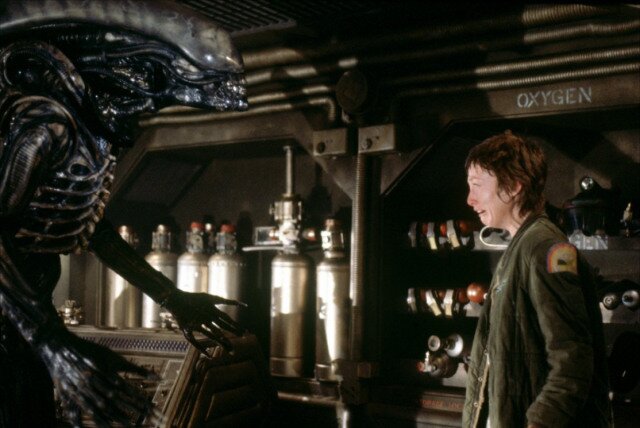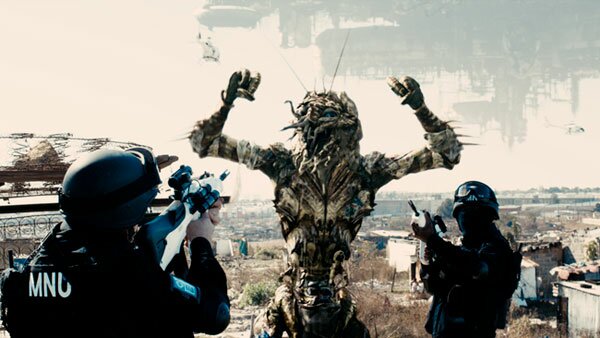
What Neill Blomkamp Can Do for Alien, What Alien Can Do for Neill Blomkamp
Alien and its first sequel, the similarly-titled Aliens, are fantastic films that deserve fantastic sequels, which they unfortunately have not had. The recent announcement of a new Neill Blomkamp-directed addition to the mythology comes with a new hope for this oft-underrated franchise. While the excitement might be marred by the negative reception to Blomkamp’s recent Chappie and the similarly-panned Elysium, there’s still plenty Blomkamp can do for Alien. What’s more, there’s plenty Alien can do for Blomkamp.
Alien succeeds in part because of its titular creature, an ingenious meld of science fiction and body horror brought chillingly to life. The latest franchise entry is almost certain to benefit from Blomkamp’s presence — the director has proven himself an impressive visual stylist, and it isn’t hard to see him dabbling in body horror throughout District 9, his first and so far best film. Although his cinematography is sometimes frustrating, he’s proven himself adept at creating science fiction with texture. His worlds feel real enough that viewers could be forgiven for trying to reach out and touch the grimy surfaces covering every inch of this dystopian world.
And that isn’t even mentioning his knack for creature design. The prawns of District 9 and the droids occupying the slummy streets of Elysium and Chappie are all masterstrokes of futuristic design that could create a compelling new incarnation of the acid-blooded creatures we all know and love. The Alien concept art Blomkamp released, which helped him land this coveted directing gig, suggests he’ll be taking the material in some interesting directions, at least visually, and point to another one of his signature plot points/thematic concepts — the monster within. The concept, employed effectively in District 9 and to lesser extents in Chappie and Elysium, is admittedly nothing new to the Alien franchise (chestbursters, anyone?), but a character-based take on the monster within trope could make the new film a stellar one for Sigourney Weaver’s Ripley. Just as Wiccus became a prawn in District 9, Ripley may be forced to inhabit the head-space of this far more foreboding alien.
But what can Alien do for Blomkamp? Now comes the portion of the article where I list Blomkamp’s myriad flaws as a storyteller and hope it’s not too late for them to be remedied, hopefully by franchise filmmaking. Franchises often force distinct directors to contain their quirks in service of fitting a sequel into its pre-established universe. While usually I’d complain about interesting filmmakers being ground up like sausage into something more easily digestible, this might be good for Blomkamp, a director who’s managed to become annoyingly one-note with only three films under his belt.
To begin with, his affinity for mockumentary, once just an interesting quirk, has become a crutch to help the director relate lazy exposition. In Chappie, the opening news-doc sequence is such a hopelessly forgettable way to introduce the audience to this world without an ounce of real creativity. His action sequences, in the same vein, have become unpleasant additions to his films that interrupt the plotting instead of playing into it. His films thrive in quiet moments but falter in loud ones.
Although Aliens is certainly full of action, this franchise is as much about existential horror as it about action, or even futuristic spacescapes. Hopefully, Blomkamp and his shaky cams can learn to sit still long enough to create the tension necessary to proceed a truly terrifying alien attack. Alien may force him to ditch the extraneous explosions in favor of something far more satisfying — immersive atmosphere.
Although the Blomkamp’s efforts and the Alien films have so far occupied separate corners of the sci-fi-verse, both geographically and tonally, there is some minor but crucial overlap between the two — social commentary. While there’s certainly nothing wrong with social commentary, and science fiction is easily one of the best genres for it, Blomkamp is often as subtle as a sledgehammer. His films are so heavy-handed in their societal messages, but the thoughtfulness generally gives way to more mindless detours that inevitably disappoint after all that ultimately useless buildup.
The Alien films are more nuanced about the commentary, but it is certainly there. The titular alien is more than just a monster, it’s a potential weapon. One of Alien’s most shocking revelations is that the humanoid android played by John Hurt is working to preserve the alien for government use, at the expense of his crew. The alien, we understand, may mean the end of human society, as the alien can’t be contained by humans as other weapons can. The alien is an atomic bomb made flesh.
This is what worries me — that the two sensibilities might compound and create something as heavy-handed in its condemnation of government and the upper classes as Elysium. It isn’t hard to imagine Blomkamp creating another over-the-top government-employed villain (a la Jodie Foster in Elysium or Hugh Jackman in Chappie) who fights tooth-and-nail to keep alien alive.
Now, however, I acknowledge I’m letting wild speculation get the best of me, and it’s hard not to when so many trends are already evident in Blomkamp’s spotty filmography. Nevertheless, there is certainly a middle-ground between the two sensibilities that may result in a truly great sci-fi film. Now it’s just a matter of trusting Blomkamp and his team to find that sweet spot.




























